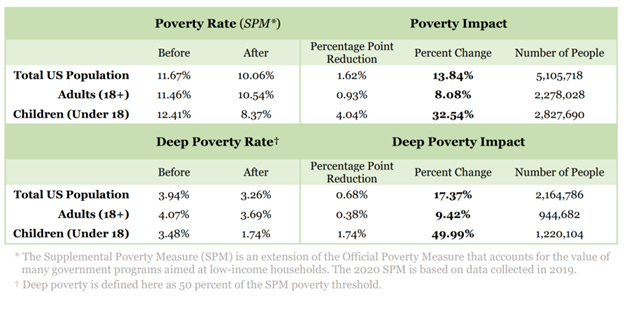(Photo By Tom Williams/CQ-Roll Call, Inc via Getty Images)
"The lady's not for turning.” —Margaret Thatcher.
Liz Cheney isn’t turning, either. On Sunday, the No. 3 ranking house Republican brought the fire — refusing to resign, apologize, or back down from her indictment of Donald Trump.
Appearing on Fox News, she actually went even further, as she called on the GOP to effectively excommunicate the disgraced former president.
Somebody who has provoked an attack on the United States capital to prevent
the counting of electoral votes, which resulted in five people dying, who
refused to stand up immediately when he was asked and stop the violence,
that -- that is a person who does not have a role as a leader of our party
going forward.
Liz Cheney may not have been Never Trump, but she is clearly Never Again Trump, and that’s a beginning.
But it also raises the question: What do we do with the late arrivals like Cheney?
Last week, Ben Sasse also joined the tiny chorus of GOP conscience, by videotaping a response to his critics: “You are welcome to censure me again – but let’s be clear about why: It’s because I still believe (as you used to) that politics is not about the weird worship of one dude.”
Too little? Too late?
Liz Cheney has been a loyal Trump lieutenant in the House. Ben Sasse broke our hearts on multiple occasions: when he went into hiding to get re-elected, voted with the president on his emergency declaration for the border wall, and against conviction in his first trial.
But right now, both of them are saying the right things. So, is it time to welcome back the prodigals?
Even the original parable acknowledges that this is not an easy call.
In the story, the younger son runs off and squanders his wealth in “wild living.” It doesn’t work out well for him, and he heads back home, hoping for absolution.
When he returns, his father greets him warmly, and gives him a big feast. But the older son is decidedly not in a forgiving mood. “Lo,” he says, “these many years I have been serving you; I never transgressed your commandment at any time; and yet you never gave me a young goat, that I might make merry with my friends.”
This time around, no one gets a goat. But we still have to decide: What is our attitude toward the Republicans from the Trump Era, who now have their regrets and want to come home to rationality?
For some on the Left this is an easy call: there is no redemption for any of them.
Forget it, they insist, you are all too hopelessly compromised — don’t bother trying to seek any absolution. In some cases this applies even to Never Trump conservatives who were, after all, actually conservative, which makes them irredeemable unless they are willing to abjure their entire past and reject every principle that they once held. I get a regular dose of this: You built this. Trump merely said what you have been thinking all along.
This is, of course, easy virtue signaling, but it is unhealthy and intellectually sloppy to gloss over the fundamental differences between the conservatism of a Milton Friedman and the raw nationalist nativism of a Steve Bannon, just as it is intellectually dishonest to confuse the progressivism of Adlai Stevenson with Che Guevera. Nuance matters.
It is also dumb politics, because it rejects the idea that politics is about attraction and addition.
But we get it. Those of us who have spent the last four years in the political wilderness can identify with the older son in the parable.
We warned them. Over, and over, and over. They had one off-ramp after another, and refused to take any of them. So this is going to be hard. Prodigal Son hard.
But…
If we’re going to get this right (and that is far from certain), we need every principled voice to draw the line against lies, bigotry and sedition, even if they are late to the party.
In order to hold Trump accountable, and push back against the tsunami of insanity out there, we are going to need a coalition of converts.
And we also need to admit this: although the case against Trump is overwhelming and urgent, it is going to be hard for Republicans to vote to convict him. Mitt Romney was the first senator in history to vote to convict a president of his own party. This time around, the vote should be easy. But the reality is that it’s not.
For every Republican (except Mitt), a vote to convict is a confession — an admission that they were wrong to back Trump for so long, and to make so many concessions to his mendacity.
Right now, we need 16 GOP senators willing to acknowledge years of profound wrongness.
Of course, the Vichy Republicans who enabled the last four years have to be held accountable, and some of them are irredeemable.
But there also has to be room for grace and pragmatism: Grace to acknowledge the possibility of redemption, and pragmatism to understand that we will very much need these people to do the right thing.
History will hold them accountable for what they have done, but at the moment, we can’t change that.
What we can try to do is influence what will happen now.
Contrition would be nice. Apologies would be more than welcome. There is more than enough time to hold Tribunals of Recrimination later.
As the father of the Prodigal Son explained to his resentful brother: “But we had to celebrate and be glad, because this brother of yours was dead and is alive again; he was lost and is found.”
I had some thoughts along these lines in my discussion with Nicolle Wallace last Friday:


Hear ye, hear ye. The second impeachment trial of Donald J. Trump cometh.
While conviction remains unlikely, it is just possible that Democrats might get it right this time.
This time, a new group of nine Democratic managers need reach back only a year to study the lessons of Mr. Schiff’s prosecution: Don’t antagonize Republicans, use lots and lots of video and, above all, make succinct arguments to avoid lulling the jury of lawmakers into boredom or distraction.
On the other hand, reports Politico’s Playbook, some of the Democratic impeachment managers are feeling muzzled.
Several of the House impeachment managers wanted firsthand testimony to help prove their case that Trump incited the Jan. 6 riot, our sources tell us. But Senate Majority Leader CHUCK SCHUMER, Speaker NANCY PELOSI and Biden administration officials have been eager for the process to move quickly, we’re told.
It’s been a source of frustration for some Democrats privately. Trump, these people have noticed, is already on the rebound politically, at least among Republicans. The GOP base has rallied to his defense, and many Republican lawmakers who witnessed the terror of the Capitol invasion are back in Trump’s corner.
The cancel culture comes for Lou Dobbs. But wait, he was cancelled by Fox News…..
The timing may not have been coincidental.
Fox News on Thursday was sued by voting-machine company Smartmatic USA Corp., which alleged the network aired defamatory comments about the company’s products following the presidential election. The lawsuit also mentioned remarks made about Smartmatic by Fox News Media anchors including Mr. Dobbs and Maria Bartiromo.
The Romney Plan.
I have to admit that I am fascinated by this debate. By proposing a major new benefit for children, Mitt Romney has scrambled the political alignments.
Democrats are reportedly now mulling the idea of following his lead by adding a $3,000 per child benefit to the Biden stimulus.
I don’t have the time to get into too much detail here, but his proposal attempts to deal with two separate issues: (1) child poverty and (2) our pathetically low fertility rate.
The Niskanen Center is making the conservative case for a child allowance:
The United States has the highest post-tax-and-transfer child poverty rate of any country in the developed world.
At the same time, the institution of American family has never looked weaker. Family formation and marriage rates have declined substantially over the last four decades, with the largest declines concentrated in the middle- and working-classes. The U.S. fertility gap — the difference between desired and actual fertility — has crept steadily higher, at least in part due to the rising costs of core goods like housing and child care. In 2019, the U.S. birth rate fell for the fifth consecutive year to its lowest level in 35 years, and it looks destined to fall even lower given estimates that the so-called “COVID Baby Bust” will lead to somewhere between 300,000 and half a million fewer births than expected.
Of course, there are critics on the right, who object to the lack of a work-requirement. But Ramesh Ponnuru wrote that “Romney’s plan deserves praise for another reason. It breaks out of the increasingly sterile debate among Republicans that centers on former President Donald Trump.”
Ross Douthat also notes that “the Romney plan offers something to left and right alike.”
It would significantly reduce child poverty, a core left-wing ambition. At the same time it reduces the current system’s penalties for marriage and its tacit bias against stay-at-home parents, both social-conservative goals, and raises the current subsidy for middle-class families, usually a Republican-leaning constituency. Finally, it’s both deficit neutral and softly pro-life, with a benefit that starts while the child is still in utero.
Quick Hits
1. Where is The Love?
ICYMI: Lindsey Appiah has a splendid piece in the Bulwark about the forgotten flock of non-white Evangelicals.
White Evangelicals as a bloc made a Faustian bargain—trading the essence of their faith for political power and status. Their near uniform adoption of nationalism mixed with personal devotion to Donald Trump is theirs and theirs alone. No other religious group has anything like it.
In most groups this would only be a regrettable choice. But for Christians it is abhorrent: the idolization of a man who neither exhibits any of the cardinal virtues nor acts in a manner even remotely consistent with the Biblical mandate to elevate love of God and neighbor above all else has deeply harmed our public witness.
But because the voices of white Evangelicals are prized above all others, their choices have become shorthand for what Christianity is in America today.
And this is an abomination.
2. The Knives Come Out for Josh Hawley
Via Emma Green in the Atlantic:
The Missouri senator became the avatar of the congressional insurrection, the one lawmakers started before the mob showed up. Conservatives and liberals alike blamed Hawley for encouraging the Capitol attackers by questioning the legitimacy of the election. Sure, seven other senators, including Alabama’s Tommy Tuberville and Kansas’s Roger Marshall, also challenged the results, as did 139 members of the House of Representatives. But Tuberville was schooled by Nick Saban, not John Roberts—the former Auburn coach wasn’t marked for political greatness. It didn’t even matter much that Senator Ted Cruz of Texas, who has a similarly elite résumé, stuck it out with Hawley and disputed Arizona’s Electoral College results. “Ted is now just that annoying fly in the room—okay, we’ll swat it eventually,” a Republican campaign operative told me. “Josh is seen as so much worse.”
How did Hawley become the most hated man in Washington? Sometimes, ideological allies turn on one another because they don’t want to admit their collective sins, and they need somebody to blame.
3. The Costs of Too Much Budget Stimulus
Desmond Lachman, in today’s Bulwark, argues that the economy needs fiscal and monetary support—but not more than it can afford.
Academic economists, like Nobel laureates Joseph Stiglitz and Paul Krugman, are now cheerleading the benefits of yet more massive fiscal stimulus in response to the COVID-19 pandemic. Indeed, for them it would seem that no budget support package is large enough even though they must know the economic risks entailed.
In pushing for more public spending largesse, they are doing us a great disservice by discounting the inflationary risks associated with unprecedented public spending. They also ignore the risk that such large budget deficits could cause asset and credit price bubbles all over the economy to burst spectacularly.
Cheap Shots
We call him RonAnon for a reason.


A word about the Wyoming GOP.


Shocked. Shocked, I tell you.
Deep Thoughts
Condoleezza Rice Remembers George Schultz
George Schultz will be remembered as one of the most influential secretaries of state in history.
He was President Ronald Reagan’s most trusted adviser as the Cold War was drawing to a close. His deft touch in reading and encouraging Reagan’s instincts, first to challenge the Soviet Union, and then to find common ground through diplomacy, served the president and the country well.
“Mr. Gorbachev, tear down this wall,” in Berlin. And: “What part of zero do you not understand,” in proceeding with the deployment of Pershing II missiles in Europe when the Soviet Union refused to remove their intermediate-range forces. These words were classic Reagan, but it was George who translated those instincts into policy wins. His diplomatic skills were on display most memorably in negotiating a landmark Intermediate-Range Nuclear Forces Treaty that eliminated a whole class of nuclear weapons for the first time in history. Reagan — with George by his side — laid the foundation for the peaceful end of the Cold War.









